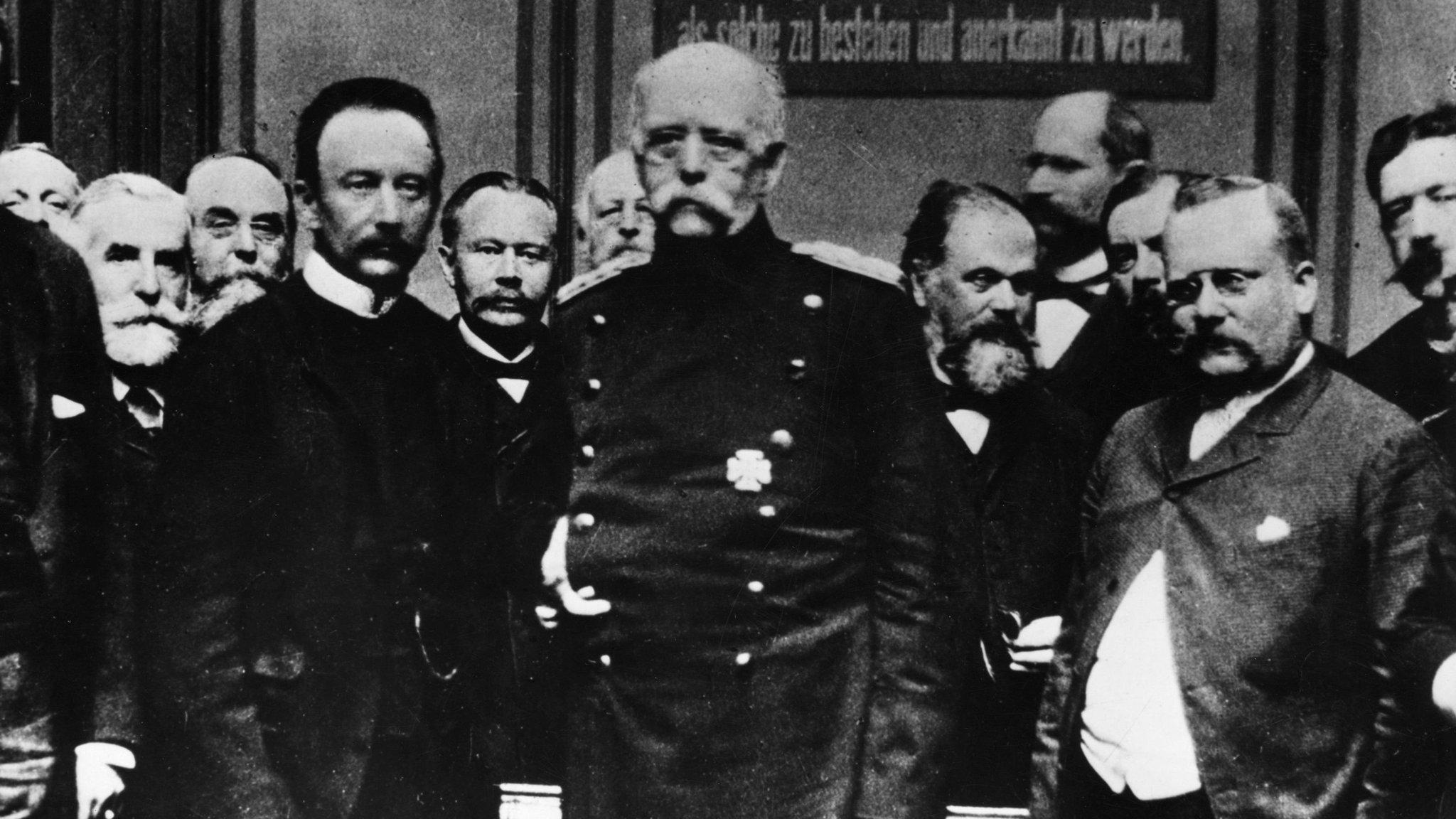I'm Ready for the Times to Get Better
Most of the media has got it wrong: Uncertain coalition prospects are actually a good thing for Germany.

Otto von Bismarck with members of the German Reichstag
The recent German federal election has been reported mostly in worried voices fearful of an upcoming time of uncertainty – both in the local as well as in the international press. Foreign observers, and interestingly also many Germans, seem to assume that not having a clear cut winner of the election is a bad thing. This assumption betrays a fundamental cluelessness of German history.
The German parliamentary system has always been at its best when coalitions were unsure and the government had to work for support of its policies. This goes back to a time before what we would think of as modern democracy. When Bismarck ran the government as Chancellor of the German Empire, he had to constantly work to secure support for the laws he wanted to pass among a very diverse parliament. There were no fixed coalitions back in the 19th century and it made for – from today’s vantage point – incredibly mobile, and very accountable, politics.
In many ways, the government was more accountable to the population back then than it is today. Even if democracy was very limited in the parliamentary system of the Reich, because the elected parliamentarians only had limited influence on the decisions of the imperial government.
One of my history professors at Bonn University always used to say “a grand coalition is the slow death of democracy in Germany.” He would then go on to list examples from the history of the first fifty years of the Federal Republic. But I think the best example of why he was right started to occur just as I left university. The sixteen years of Merkel’s reign – it is best categorised as such, I feel – and three terms of her leading a grand coalition are a prime example of what that kind of government does to Germany.
Under Merkel, privacy protections, civil liberties and constitutional protections of her citizens have been slowly but steadily eroded. Germany has fallen behind technologically quite dramatically – both in digitalisation matters as well as in a botched energy policy that has seen an early lead in renewables under Schröder’s Red/Green coalition obliterated, only to bolster nukes, which were then promptly axed following the Fukushima accident. This disastrous mismanagement has left Germany largely dependent either on Russia or the United States for its energy needs.
And Merkel’s technology policies isn’t the only aspect of the government that has been all over the place. Her foreign policy, both towards Russia and the US, hasn’t been much better. She’s never stood up to either Obama, Trump nor Biden – or Putin, for that matter. Not to mention her lax stance on China’s claim to world dominance or the disaster her handling of Brexit might turn out to be for the European Union. All of this was pushed through by the unstoppable power base of a grand coalition, to the detriment of the actual voters.
Merkel has jeopardised the future of one of Germany’s proudest – and most important – industries to en vogue sensibilities. She releagated the car manufacturing industry from a most important source of money for the state and huge source of employment for the population to a pariah. A pariah cowed to produce electric vehicles that are clearly a step backwards to anyone who can think clearly and is unhampered by government and corporate propaganda (ie. advertising). Soon enough the world will wake up to the fact that people don’t want these vehicles beyond the obvious virtue signalling factor. And Germany will have squandered its reputation and technological lead in the field. We will have missed the oportunity to find a solution to the problem that actually works. Which will be left for the Japanese or Chinese to pick up. Meanwhile, Germany will have sacrificed this lead on the altar of Keeping Merkel in Office.
Merkel has largely spent her time as Chancellor fortifying her own position. And she has sacrificed German infrastructure, the stability of the EU and the freedoms of its citizens to this, her ultimate goal.
It’s high time for more flexible politics in Germany. We need a government that is accountable to its people instead of being entrenched against them. A complicated election result is exactly what this country needs. In fact, a more complicated result might have been even better for the political process going forward. The last thing we need now is another grand coalition government that is secure in its political power base.
We need more desperate fights and hard-fought discussions. We need more movement and more slack in the process. Maybe then our civil liberties and constitutional rights won’t be kicked to the curb without significant pushback and protest. Maybe the government will then think twice before sacrificing our jobs to some loud-mouthed anti-democratic extremists and maybe it won’t ignore our infrastructure for decades until we’re the butt of every joke in Europe.
Here’s to hoping things will start to get better.
